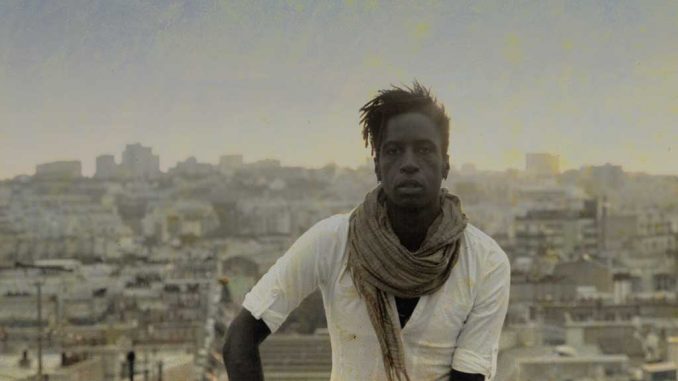

While spoken word poets are not considered mainstream, Saul Williams doesn’t believe in putting a title on his art.
“I am just a guy who primarily likes doing things that I enjoy,” Williams said.
A majority of his work has a central theme of advocating for changes in the world.
“I am waiting for things to change for the better, not necessarily for people of color, but for all franchises — gays, women and poor,” Williams said.
Williams used these influences to form the theme of identity for his new book, “Chorus,” released today, Sept. 4. The creation of “Chorus,” which he dubs a “literary mix tape,” was incredibly fan interactive.
Williams put an open call out to Facebook and Twitter for his fans to send in poetry. He chose 100 of the 8,000 submissions as inspiration, selecting words from each poem to create his own original pieces.
“I had a lot of fun,” Williams said.
A Newburgh, N.Y., native, Williams’ background has had a lot of influence on the man he is today.
“I was exposed to a lot,” Williams said.
Newburgh was a high-crime area when Williams was living there, and is still known today as the murder capital of New York. Williams’ parents, his mother, a schoolteacher, and his father, a pastor, encouraged him to love despite his surrounding area.
“When I was young, I aspired to be a rapper and an actor,” Williams said.
Growing up, Williams’ greatest influences were pioneers of the hip-hop culture, such as Public Enemy, Run DMC and LL Cool J. These influences are prominent in his poetry, which bears a sound and flow like an old school hip-hop record.
Williams, who is also known as a musician, songwriter, actor and author, never strayed far from his childhood dreams. His repertoire includes writing and acting in “SLAM,” the 1998 Sundance Film Festival winner, to appearances on HBO’s “Def Poetry” and roles on TV shows, such as “Girlfriends.” When talking to Williams, it’s clear he fully comprehends the impact that he makes through his art. Williams does not seek the approval of others, though.
“My father was a minister. The difference between ministers and evangelists [is that] ministers preach to people who show up,” Williams said. “[An]evangelist goes out and tries to get more people to show up, I guess I have that in common with him.”
Saul Williams will be performing tonight, Sept. 4 at World Café Live.
THE TEMPLE NEWS: How did you start doing poetry professionally and what was your “aha moment”?
SAUL WILLIAMS: My “aha moment” happened at a poetry meeting in Brooklyn on March 16, 1995. I was in grad school for acting and that was the first place I read at. During that moment I realized I had a connection with performing. I had come to a complete innocent.
TTN: Where do you draw your passion from?
SW: Passion is not like oil where I can just go drill from it. Passion is always there. As an artist, I am inspired by other artists. I am inspired by food. I am inspired by good books. I am inspired by good conversation. I like clothes. I like fashion. I like walks in the park. I like good food. I like good wine. The problem isn’t finding passion. The problem is trying to tame the passion.
TTN: As a poet and a musician, do you view your poetry and your music as the same?
SW: No, I don’t think they are the same thing. Although, there is music in poetry and there is poetry in music. What poetry attempts to do is attempt something with words. Music, on the other hand, brings about a million ideas without ever having to say a word.
TTN: You just recently returned from Swaziland. What was it like?
SW: Overall my experience in Swaziland and other countries in Africa was having this connection with the people. The people were beautiful. People were crazy kind, people were intelligent, super connected with what was happening in the world. At the same time, yes, people were impoverished and all of that. But, you know, people treat poverty differently. You go to some countries and people see poor as degrading. In Swaziland, on the other hand, you see the poor with other poor together and thanking.
TTN: How did your recent travels affect your newest work? And would you recommend any of those places to someone to visit?
SW: After I left Swaziland, I went to Columbia, and I was recording the album I am working on currently. I heard something in the music that sounded like something I had heard in Ireland mixed with a type of old Columbian music. Out of the places I traveled, I would just say go anywhere. Realistically, I would say as Americans we need to travel, because you know not what, but how we are exposed to the rest of the world really implicates us in a bunch of bullshit. When we wage war and say “Oh, they are crazy over there,” 86 percent of us haven’t been there to see. And it becomes a certain type of arrogance to exert and assume that we know something about reality.
Ashley Kemembin can be reached at ashley.kemembin@temple.edu.



Be the first to comment